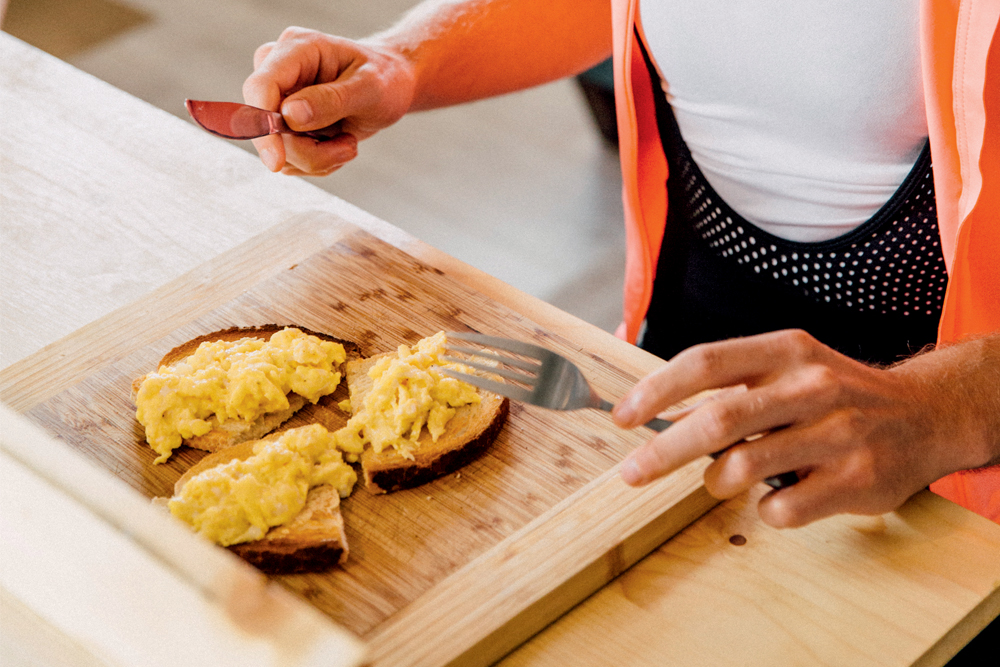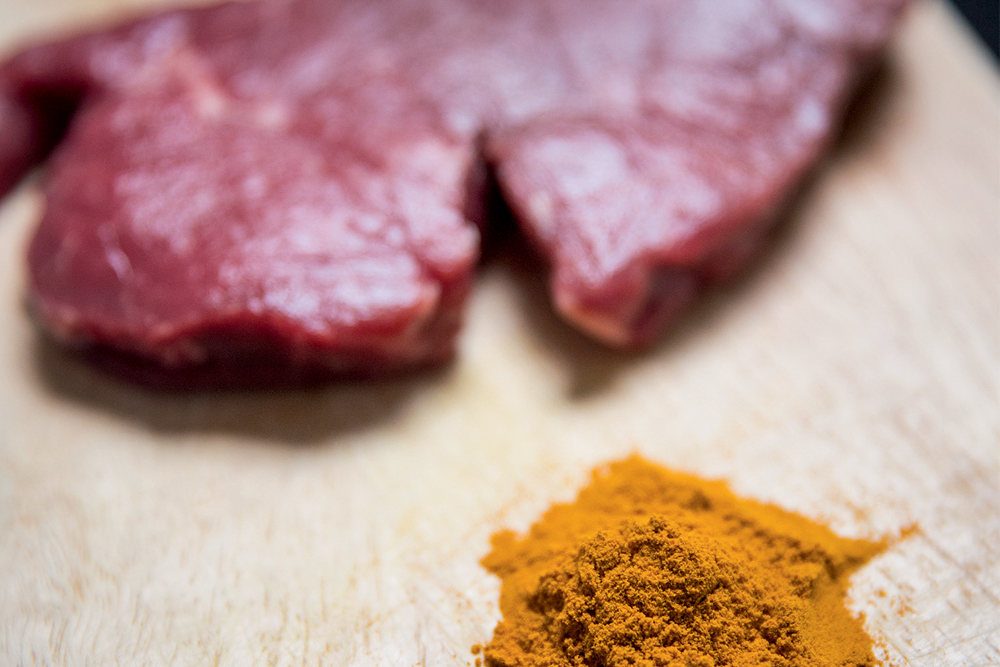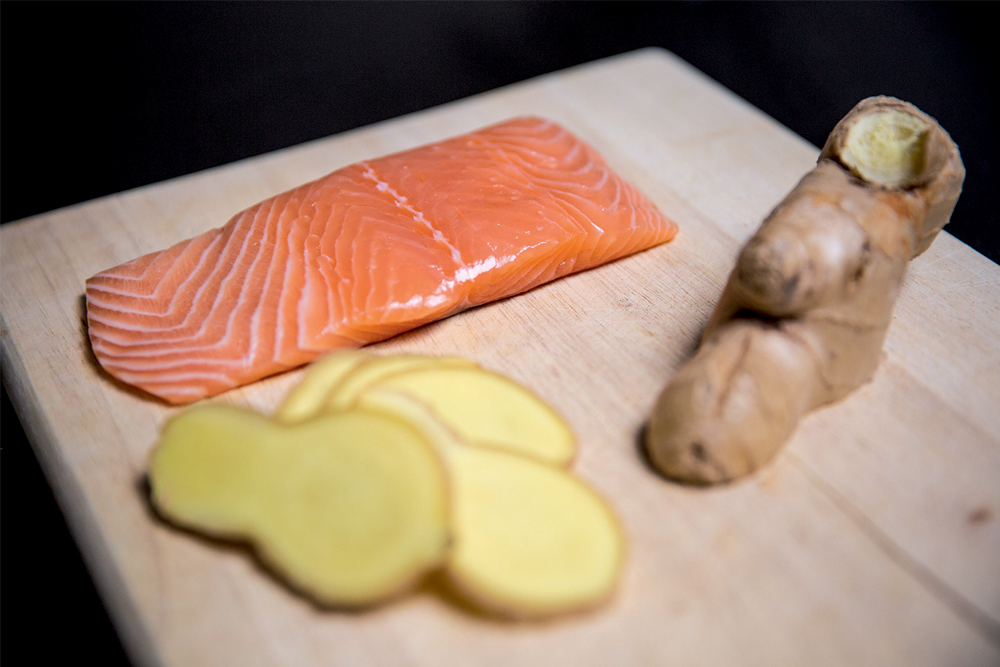Feeling post-ride muscle pain? Nutrition is key - here’s how to fuel right for recovery
Eat right before and during cycling - as well as after - to avoid muscle pain


Sore muscles after a particually long or intense ride is a very common feeling - and somewhat to be expected from a sport as physically demanding as that of cycling. But within that, there is sliding scale where 'reasonable' soreness crosses a threshold and becomes an indicator that something is wrong.
This could be as simple as increasing the distance and/or intensity too quickly. If you've gone straight from not training at all to five sessions a week or jumped up to an 80 mile ride from previously doing 20 - or even going from riding consistantly to adding in 10x1min all-out intervals - your muscles will very likely be feeling sore the next day.
The answer there is to follow a cycling training plan, which will add distance an intensity progressively and won't overload your body.
Another key factor when it comes to muscle soreness is your nutrition for cycling. Quite simply, if you don't fuel your body properly, it'll start breaking itself down and be unable to rebuild - processes which manifest themselves as sore muscles, as well as lethargy, brain fog and various other symptoms. For more detail on underfueling, which has surfaced as a hidden epidemic in cycling, you can find our article on RED-S over here.
But in terms of what good cycling nutrition looks like and what you can eat to help reduce your feelings of muscle soreness post ride, Laurent Bannock of Guru Performance is an exercise physiologist who specialises in fuelling for exercise, and he's shared with us the details on what's best to eat and when.
How to prevent muscle pain with good cycling nutrition
“The most important strategy is to eat sufficient quantities of food every day, not just on training days, especially protein-rich foods”. Bannock also suggests that carbohydrates are crucial before and after exercise - and during, if your ride lasts more than 60 minutes - “not only to fuel the exercise, but also to prevent stress to the immune system that occurs when the body is deprived of carbohydrates.”
The Essentials
1. Focus on everyday diet
2. Get adequate protein daily
3. Eat carbs if riding over 60 minutes
4. Don’t under-eat
5. Don’t overtrain
6. Train less if stressed
While one of the best recovery drinks will help recovery from damage, fuelling sufficiently before a ride may stop damage occurring in the first place. If your body has insufficient calories to fuel a ride, it can start to break down muscle for energy.
The latest race content, interviews, features, reviews and expert buying guides, direct to your inbox!
Bannock suggests: “A protein-rich meal in the hours before exercise will still be releasing amino acids via the blood to the working muscles, which will support the body from the stress and damage to muscle tissue caused by exercise.”

Inflammatory response
What about the fuel consumed during a training ride? “If you have eaten properly beforehand, that is, the day before and morning of training, you don’t need any special strategy during the ride to prevent sore muscles afterwards. You need to pre-load the body with nutrients well beforehand,” Bannock advises.
Though tired legs are par for the course, excessive soreness may indicate that you’re not recovering properly: “Exercise is a form of stress that is normally tolerated by a fit and healthy body, but if there is already a level of stress, it can exacerbate the problem.”
Stress may cause an overactive inflammatory response, limiting the body’s ability to repair and rebuild muscles. Bannock explains that inflammation can be caused by “illness, under-eating and overtraining, too few days off and poor sleep”.
To give your body the fuel it needs to recover, he advises eating “protein-rich foods, fats such as eggs and oily fish, enough carbohydrate and nutrient-rich vegetables and fruit.”

Key points
A diet high in omega-3 fats has been shown to reduce muscle pain after exercise, possibly due to promotion of a more balanced immune system that can heal damaged muscle without excessive inflammation.
Antioxidant supplements may help prevent muscle pain post-exercise, but research suggests they may stop positive adaptation to exercise in the process. It’s better to go for whole foods, such as fruit and vegetables, which contain antioxidants.
Adaptogens, such as Siberian ginseng, aid recovery when taken as a dietary supplement before exercise.
Glutamine is a non-essential amino acid that can significantly reduce muscle pain after exercise if used as a supplement beforehand. This may be because it stops breakdown of muscle for energy during exercise.
Taurine is an amino acid found in skeletal muscle tissue. It reduces post-exercise muscle soreness when taken as a pre-exercise supplement.
Getting enough carbohydrate during exercise is crucial to preventing excess stress on the immune system, and to fuel your muscles. A strong immune system will mean faster recovery from exercise.

I’ve been hooked on bikes ever since the age of 12 and my first lap of the Hillingdon Cycle Circuit in the bright yellow kit of the Hillingdon Slipstreamers. For a time, my cycling life centred around racing road and track.
But that’s since broadened to include multiday two-wheeled, one-sleeping-bag adventures over whatever terrain I happen to meet - with a two-week bikepacking trip from Budapest into the mountains of Slovakia being just the latest.
I still enjoy lining up on a start line, though, racing the British Gravel Championships and finding myself on the podium at the enduro-style gravel event, Gritfest in 2022.
Height: 177cm
Weight: 60–63kg